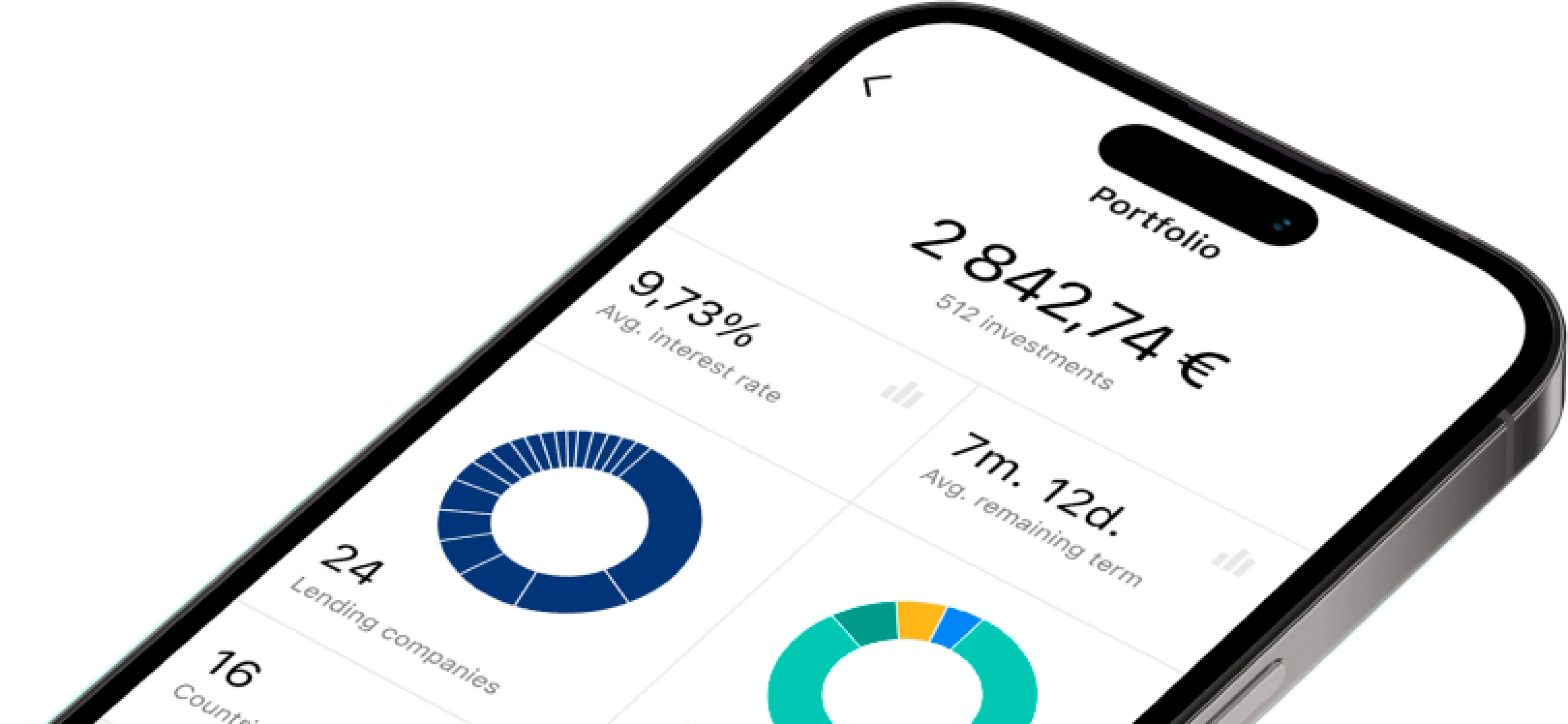Vega Arkfin acts as a bridge linking people curious about getting investment knowledge with those who provide it. Vega Arkfin brings investment teachers to intending learners to increase investment education awareness and people’s knowledge.
As Vega Arkfin connects people, they are exposed to the world of investment, which supersedes merely learning the practical processes of buying, holding, or selling assets. In other words, the goal investment education firms serve here is not to raise investors but to make people understand what investment entails and apply derived knowledge to other aspects of their lives.
Connecting with investment education firms on Vega Arkfin requires registration. Interested learners should click the sign-up form and submit their names, emails, and phone numbers to register. The firms will reach out to everyone who registers via phone to guide them through other processes and answer their questions.

To raise awareness about investment education and encourage people to get it, Vega Arkfin registers and connects people with investment education firms for free. Sign up for free on Vega Arkfin and connect with investment education companies.
Using Vega Arkfin to register and connect with investment education firms is easy. People do not need technical know-how before using Vega Arkfin.
So, it doesn’t matter if people’s educational background, career, or job is not tech-related; they can register for investment education. Register on Vega Arkfin to start.
Vega Arkfin does not tilt towards a certain ethnic group, career, location, gender, or age. Vega Arkfin welcomes everyone to acquire investment education.
Anyone can register on the website and connect with investment education firms worldwide. To register and connect, fill out the sign-up form.

Vega Arkfin is designed in different languages. People can switch to their preferred language when registering. Register on Vega Arkfin in any language and connect with investment teachers.
Vega Arkfin loads fast, and the registration process takes only a few seconds. Sign up on Vega Arkfin to match with an investment education firm and start learning.
Connecting with investment education companies is quick. Vega Arkfin connects people to these companies immediately after they register. Register and connect with an investment tutor instantly.
An investment education firm is an institution that teaches people the rudiments and advanced topics related to investment. These include what investment means, its types, strategies, risks, risk mitigation processes, and market types. The firm provides learning curriculums, designs teaching models, and grades students’ quizzes, assignments, and exams.
Students gain a broad understanding of investment by enrolling in these firms. Their focus shifts from viewing investing as something to jump into willy-nilly to a field that can influence their businesses, careers, jobs, and finances. Want to connect with an investment education firm? Register on Vega Arkfin.

An investment is any asset bought and held for possible gains. The asset can be a stock, bond, cash or cash equivalent, exchange-traded fund, or mutual fund. Despite an investor’s effort to yield a good return on investment, the economic condition or market often brings about loss, thus making investment risky. Vega Arkfin discusses investment types below:
A stock is an investor’s partial company ownership. The ownership percentage is determined by the amount invested. People own stocks for dividends, limited liability, and voting power. Yet, stock markets are volatile and risky. Sign up on Vega Arkfin to learn more about stocks.
A bond is a financial instrument companies and governments use to raise money to finance their projects. It usually has a face value, coupon rate and date, maturity date, and issue price. Credit and interest rate risks often affect bonds. To learn more, register on Vega Arkfin.
Cash or Cash Equivalent
Cash or cash equivalent are securities in money form or those easily convertible to cash. Register on Vega Arkfin to know more.
Exchange-Traded Fund
An exchange-traded fund tracks the performance of an index. Sign up on Vega Arkfin to learn more.
Mutual Fund
A mutual fund is an investment fund or company that pools money from several investors to invest in different assets.
The types of mutual funds are stock, money market, target date, and bond fund. A mutual fund is liquid and allows diversification. Yet, it requires high fees and open to market risk. Learn more by registering on Vega Arkfin
Real estate investment involves building or acquiring properties for rental, lease, or purchase. This investment may provide consistent income. It may also be maximized through leverage, and its expenses are tax-deductible. On the other hand, vacancies can affect real estate income negatively. Want to learn more about real estate? Register on Vega Arkfin.

Stock types are common, preferred, growth, penny, value, income, defensive, cyclical, and non-cyclical. A common stock gives its holders the right to claim a share of a company’s returns and even vote when choosing the board of directors. A common stockholder is only paid when preferred stockholders, creditors, and bondholders have been paid.
A preferred stock also represents company ownership. It pays returns but gives little to no voting rights. This stock has no end date, is issued at par value, and its dividends may increase or decrease. Preferred stock types are preference, prior, cumulative, non-cumulative, convertible, and perpetual preferred stock. A growth stock may grow faster than the average stock in the market. It often trades at a high price-to-earnings (P/E) ratio. Examples of growth stocks are Netflix, Apple, Amazon, and Facebook.
A penny stock is priced low and has a low market capitalization. This stock is illiquid and may evolve into a multi-bagger but is highly volatile. Get more information about stocks from investment tutors by signing up on Vega Arkfin.
An investment risk is a probability that an investment will not yield the expected returns. Some factors causing investment risks are changes in leadership, market volatility, and government policies. Investment risks are concentration, liquidity, longevity, market, reinvestment, horizon, and credit. Concentration risk affects investors who choose only one security or asset class. When the market declines, an investor may lose their entire investment.
Liquidity risk is an investor’s inability to find a market to convert their asset to cash. This situation might cause the investor to sell low, causing a loss. Longevity risk often affects retirees who outlive their investment funds. Vega Arkfin explains more risks below:
This risk affects the whole market or a part of it. It is subdivided into interest rate, equity, and currency risks. Interest rate risk affects an investment value due to the unstable movement of interest rates. It may be mitigated through hedging and diversification. Equity risk is the tendency to lose due to a drop in shares’ market price, while currency risk affects investments due to changing exchange rates. Register on Vega Arkfin to learn more.
Reinvestment risk occurs when a person can only reinvest the principal and income from an investment at a lower rate, causing loss. For example, reinvestment risk often affects callable bonds because they are redeemed when interest rates decline. To learn more, register on Vega Arkfin to connect with investment education firms.
Horizon risk affects an investment during its holding period. This situation can cause an investor to sell an asset before maturity. Causes of horizon risk include technological advancement, economic and political factors, and market volatility. Managing horizon risk involves asset allocation, diversification, and portfolio review. Get detailed information about this risk by signing up on Vega Arkfin.
Credit risk is when borrowers fail to pay their debt. This risk may be managed through measurement and mitigation. Credit structure, sensitivity analysis, and portfolio-level controls are strategies for mitigating credit risk. Credit measurement and mitigation follow the 5Cs framework - character, capacity, capital, collateral, and condition. Get more information by signing up on Vega Arkfin.
Risk mitigation strategies are used to reduce the impact of risk (since they cannot be entirely avoided). These strategies include dollar-cost averaging, rebalancing, asset allocation, hedging, and diversification. Dollar-cost averaging is used to minimize the effect of market volatility by investing a fixed amount at certain intervals.
Rebalancing involves adjusting a portfolio to maintain the initial asset allocation. Asset allocation is investing in different asset classes to avoid concentration risk. An investor may hedge, using derivatives, options, and futures to offset potential losses. Sign up on Vega Arkfin to get more information from investment education firms.
Market value is how much an asset or company is worth. It can also be referred to as market capitalization. On the contrary, the market price is the amount at which goods are exchanged.
When there is a fair market, market value and price can be the same. For a market to be fair, there should be enough time, information, and exposure, mutually agreed price, and zero distress.
Market value is expressed as market value per share, book value per share, P/E ratio, earnings per share, and market/book ratio. It is calculated using the income, asset, and market approaches. Register on Vega Arkfin to learn more.
Market capitalization is a company’s dollar value at the current market price. A company can have a nano, micro, small, mid, large, or mega capitalization. The ratios investors should bear in mind when studying a company’s market capitalization are price-to-book, P/E, price-to-free-cash-flow, and enterprise-value-to-EBITDA (Earnings before Interest, Taxes, Depreciation, and Amortization). Learn more about market capitalization by registering on Vega Arkfin.
An asset is a resource (whether tangible or intangible) that holds an economic value and may yield income. Register on Vega Arkfin to learn the types.
An interest is the charge a person pays on borrowed money. The loan duration determines the interest. Want to learn more? Connect with an investment tutor on Vega Arkfin.
This is the payment made to an investor with equity in a company. Register on Vega Arkfin for more details.
A shareholder is someone with ownership shares in a company. Connect with an investment education company on Vega Arkfin to find out more.
Equity is an investor’s ownership share in a company. Register on Vega Arkfin to discover more about equity.
A portfolio is a collection of an investor’s assets. Sign up on Vega Arkfin to learn more about an investment portfolio.
Looking to develop a career, job, or business, build knowledge, or gain exposure? Investment education may help achieve this, as it shares deep investment information and provides insight unavailable elsewhere. Want to access this? Register and connect with investment education firms for free on Vega Arkfin.

| 🤖 Enrollment Cost | Free of charge enrollment |
| 💰 Transaction Fees | No transaction fees |
| 📋 SignUp Procedure | Efficient and prompt registration |
| 📊 Curriculum Focus | Courses on Cryptocurrencies, the Forex Market, and Other Investment Vehicles |
| 🌎 Accessible Regions | Excludes USA, available in most other regions |


